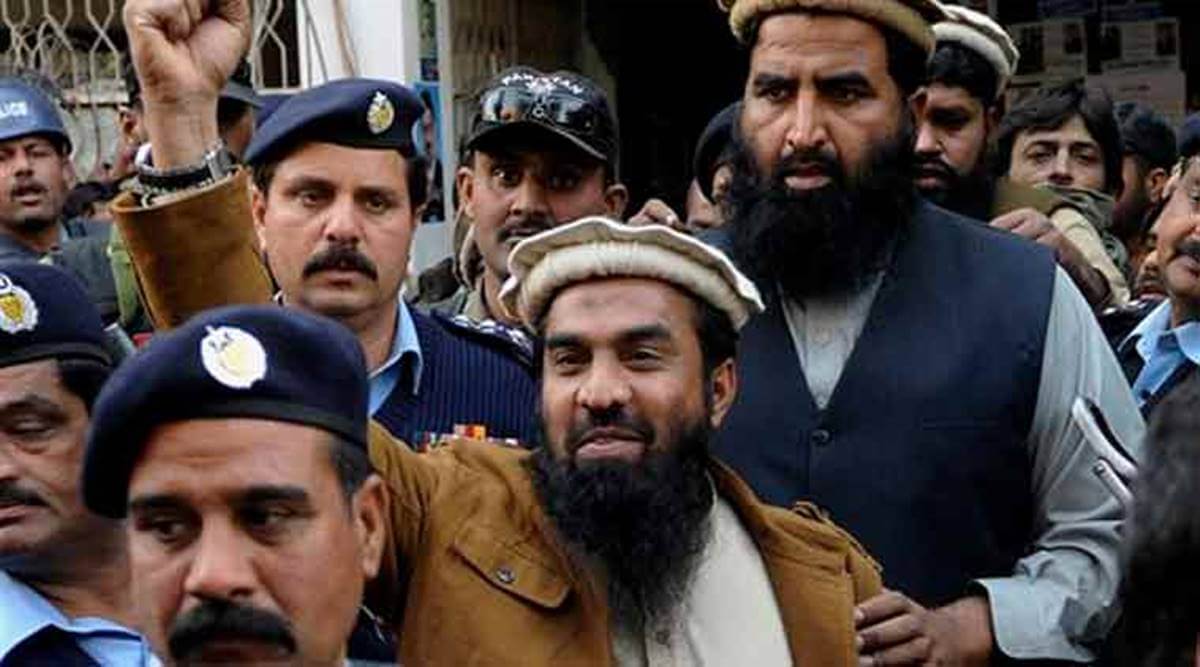On Saturday, Zaikur Rehman Lakhvi, the operations commander of the Lashkar-e-Taiba (LeT) and the main suspect of the 26/11 attacks in Mumbai, has been arrested following a decision by a Pakistani court to sentence him to 15 years in jail on charges of terror financing. According to the Pakistani court, he was running a medical dispensary in the Punjab province that he was using to collect funds to help the LeT organise and execute terrorist attacks.
Previously, both India and the United States (US) have pressurised Pakistan to take action against Lakhvi, who has been accused of orchestrating the 26/11 Mumbai attacks, which led to over 160 deaths. Amongst those killed were several American, British, and Indian nationals. During the attack, ten armed Pakistani terrorists conducted attacks across Mumbai, targeting luxury hotels, train stations, and a Jewish cultural centre.
Following an investigation into the matter, Indian authorities claimed that Lakhvi was in constant contact with the gunmen during the attack and helped “indoctrinate all the attackers”. After facing pressure from the international community, Pakistan finally arrested him in 2008 and jailed him in 2009. However, in 2015, he was granted bail following a court order calling for his release. He has also been designated as a “global terrorist” by the United Nations for “participating in the financing, planning, facilitating, preparing or perpetrating of acts by, in conjugation with, under the name of, on behalf or in support of” the LeT and Al Qaeda. India also blames the LeT for the 2001 attack on its Parliament, which at the time almost brought the two rival countries to war.
Following his arrest on Saturday, the US State Department tweeted, “We will follow his prosecution and sentencing closely and urge that he be held accountable for his involvement in the Mumbai attacks.” The tweet also welcomed the decision and called it “an important step in holding him accountable for his role in supporting terrorism and its financing.”
However, India continues to believe that the arrest of Lakhvi is merely for appearances, specifically in light of the Financial Action Task Force (FATF) meeting in February. A statement by Anurag Srivastava, the spokesperson for the Indian Ministry of External Affairs, called his arrest “farcical”. He said, “The timing of these actions clearly suggests the intention of conveying a sense of compliance ahead of the APG (Asia-Pacific Group) meeting and the next FATF plenary meeting in February. It has become routine for Pakistan to come up with such farcical actions prior to important meetings.” He also urged the international community to come together to hold Pakistan accountable for its role in housing global terrorists.
In October, following a three-day virtual meeting of the watchdog, the FATF announced that Pakistan would continue to remain on its “grey list” or the list of “jurisdictions under increased monitoring.” The decision was made as Islamabad failed to fulfil six out of 27 of its targets on Anti Money Laundering/Countering the Financing of Terrorism (AML/CFT). The international terror financing and money laundering watchdog, which is based out of Paris, had given Pakistan an additional four months to fulfil its obligations. Once all 27 of its targets are met, the FATF will send a team to review the effectiveness of new policies implemented by Islamabad and assess whether they are in tandem with the group’s recommendations.
LeT Commander Arrested Following Conviction on Terror Financing Charges by Pakistani Court
26/11 mastermind and senior member of the Lashkar-e-Taiba, Zaikur Rahman Lakhvi, was arrested following a Pakistani anti-terrorism court’s judgment convicting and sentencing him for terror financing.
January 11, 2021

SOURCE: ASSOCIATED PRESS
